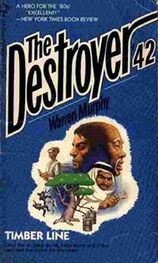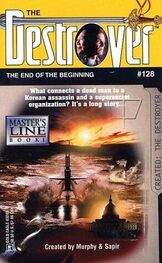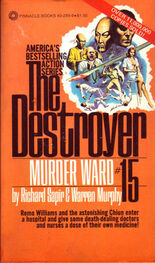Into this melee stepped a very befuddled secretary general and his under secretary for peacekeeping operations.
As he observed the open brawling, the secretary general's stony face did not change one particle. He looked to the under secretary, and the under secretary looked back. Both men shrugged their shoulders in mirrored gestures.
When the delegate from Iran, sans Islamic turban, went tumbling past, the secretary general asked him, "What is wrong?"
"I do not know. I did not hear the speech."
"Then why are you fighting?"
"I am fighting the delegate from Israel. I have always wanted to punch him in the face. This seemed like the perfect opportunity."
The delegate from Iraq came sliding by on his Saddam Hussein-style mustache. "Allow me to guess. The delegate from Israel did that."
"How did you know?"
"Because they did exactly that to my country during the Six Day War," replied Anwar Anwar-Sadat.
Striding forward, the secretary general waded through the surge and clash of bodies, pushing and tripping combatants as they swirled around him. His liquid brown eyes sought the podium. He caught a brief glimpse of a colorful little man as he exited through a side door.
"I do not recognize him," he muttered.
"Nor do I," said the under secretary.
Then their eyes went to the red lights scattered through the upper booths. TV camera lights.
"CNN," they said in a single hoarse voice.
The secretary general filled his lungs with air. "Guards! Seize those cameras. They must be stopped, and all tapes confiscated."
But it was too late, the secretary general realized with a cold, growing horror.
The lavish spectacle of the United Nations General Assembly embroiled in the diplomatic equivalent of a barroom brawl had already been broadcast to the entire television-viewing world.
And there was absolutely no stopping it.
What the secretary general didn't know and couldn't suspect was that the public relations ramifications of the day were immaterial. The damage was already done. And it extended far, far beyond the injured prestige of the United Nations.
Most incredible of all was the still-unrecognized fact that the havoc to come had been wrought by an anonymous man giving a three-minute speech.
Chapter Six
The speech that set diplomat against diplomat and was destined to set nation against nation was never broadcast, ironically enough. It hadn't been given in English, which was the lingua franca of international commerce and diplomacy. Had it been in English, CNN and the U.S. television networks would probably have excerpted a sound bite, which might have run as a lead-in to what the world thought was the story.
Namely that a brawl rivaling that seen in Russian or Japanese parliaments had broken out in the General Assembly Building.
Nothing like it had ever before been witnessed. The international viewing public was used to the same stock General Assembly shot—the delegates seated in the semicircular rows, some waving pencils, others yawning with the tedium of representing their countries before a body that debated endlessly and did little.
It was the biggest thing that had happened in the General Assembly since Khrushchev had pummeled the podium with his shoe.
And no one understood the true import of it all.
Least of all the secretary general.
After the evening newscasts had run the spectacle with inappropriate commentary, Anwar Anwar-Sadat came out of his office on the thirty-eighth floor of the Secretariat Building and deigned to address the news media.
"I have a statement," he began in his slow, measured cadences.
As usual the media could not have cared less.
"Does this mean the end of the United Nations as we know it?" asked one reporter.
"I would like to give my statement if you do not mind."
"How do you explain this unprecedented behavior?" another reporter demanded.
"My statement will be brief."
"Why did another person give your speech, and will your office provide the text of the address that was given?"
Anwar Anwar-Sadat's stony reserve was broken by that last question.
"My speech was never delivered—by myself or any other. I do not know what was said on the podium. Now, as to my statement—"
"Are you or will you resign over this breach of security and decorum?" he was asked.
"My statement follows," he snapped.
Scenting a sound bite, everyone shut up.
"On this afternoon occurred as regrettable an incident as has ever occurred during the history of the United Nations. Owing to an unfortunate lapse of security, a person of unknown affiliation took the podium and delivered remarks before the General Assembly that were most unfortunate and resulted in the lamentable incident that was unfortunately telecast this evening. It would have been far, far better had the news media shown due restraint and not telecast this regrettable occurrence."
The secretary general paused. The news media held their collective breath.
"Thank you for coming," concluded the secretary general.
"That will be all," said an aide, shooing the media from the reception area.
"What about the future of the United Nations?" a reporter demanded. "How can the peacekeepers keep peace in the world if they themselves can't get along?"
"Will the UN go the way of the League of Nations?" an older correspondent chimed in.
That last in particular stung, but Anwar Anwar-Sadat swallowed his angry retort and slipped back into his office.
He had given the statement that his job demanded he give, one festooned with "unfortunates" and "lamentables" but which said nothing. If he remained out of the public eye and the General Assembly behaved itself when it reconvened tomorrow, the events of this day, he felt confidently, would quickly fade from public memory. At worst, it would resurface in the year-end roundup of memorable and unusual world events the media seemed to delight in recapping.
In that, the secretary general was dead wrong. The story didn't go away, because the General Assembly was not to reconvene the next day. It was impossible to reconvene the General Assembly for a very simple reason.
Every diplomat without fail had been recalled for consultations.
And no diplomat with whom Anwar Anwar-Sadat spoke could give anything but a vague, evasive and diplomatically correct explanation.
There was one exception. The delegate from the United States.
She was the only one to call him in the aftermath of what the media had already dubbed the UN Fiftieth Anniversary Gala Ruckus.
"Mr. Secretary General, we at the State Department are very concerned about this afternoon's incident."
"It is nothing," Anwar Anwar-Sadat insisted.
"We understand the delegates have been recalled for urgent consultations."
"A mere cover story, I assure you. In truth, I myself suggested a cooling-off period."
"In the middle of debate over the Macedonia question?"
"Tut-tut. Macedonia will not convulse overnight."
"We would like to know what happened."
The secretary general searched the ceiling for a plausible explanation. "You will remember the events that triggered the First World War?" he purred.
"Not personally, of course."
"Europe was then a network of treaties and alliances with no broker or mediator. Unlike today. When the unfortunate assassination at Sarajevo took place, a domino effect resulted. Countries bound by paper treaties found themselves at war with other countries with whom they had no quarrel. It was to avoid such recurrences that the United Nations was created."
"You're thinking of the League of Nations," the U.S. delegate said acidly. "And let's skip the commercial for a new world order and go directly to the point."
"Very well," the secretary general said stiffly. "A disagreement broke out between two delegates. I have already forgotten whom, this is such a trivial matter. A blow was struck, a delegate fell. A third delegate, whose nation was on excellent terms with the one that was struck, interceded and knocked down the aggressor. Very quickly there were escalations and counterattacks. It was just like the prelude to the First World War, only without bloodshed."
Читать дальше




